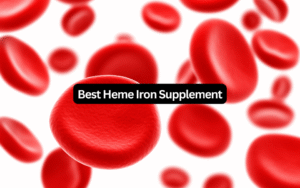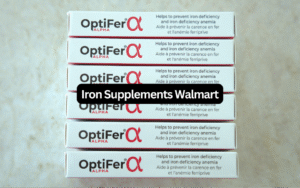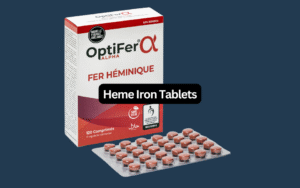
Signs and Symptoms of Iron Deficiency Anemia
Here are some of the most common signs and symptoms of iron deficiency anemia:
• Pale / yellowish skin
• Tiredness and lack of energy
• Respiratory troubles
• A feeling of weakness
• Elevated heart rate
• Pounding in the ears
• Headaches
• Unexplained cravings for ice or clay
• Pain on the tongue due to Glossitis (an inflamed tongue)
• Weak nails
• Hair loss
As you can see, iron deficiency anemia involves some nasty symptoms that can really pose a problem in daily life. Many sufferers of iron deficiency anemia struggle with fatigue and exhaustion to the point where they are unable to enjoy any form of physical activity. This lack of exercise can lead to additional problems, for example heart disease and weight gain. Various complications can occur as the patient continues to struggle with iron-deficiency anemia, so you should try and find treatment as soon as possible.

Who Is At Risk?
Here are a few examples of the groups of people who are most at risk from iron-deficiency anemia:
• Women who have periods, particularly with heavy bleeding
• Pregnant women
• Anyone who has recently undergone surgery or a significant injury
• People with intestinal diseases or conditions
• People with stomach or gut ulcers
• People who have undergone certain procedures like gastric bypass operations
• Vegetarians, vegans or anyone with a diet that is not rich in iron
• Children who drink lots of cow’s milk (this milk can interfere with iron absorption)
Pregnant Women
For pregnant women, anemia is a big problem as it can interfere with both mother and child. Babies can be born with dangerously low weights and may also be born early when iron deficiency is involved. Mothers can also struggle with exhaustion, depression, and various other problems.



